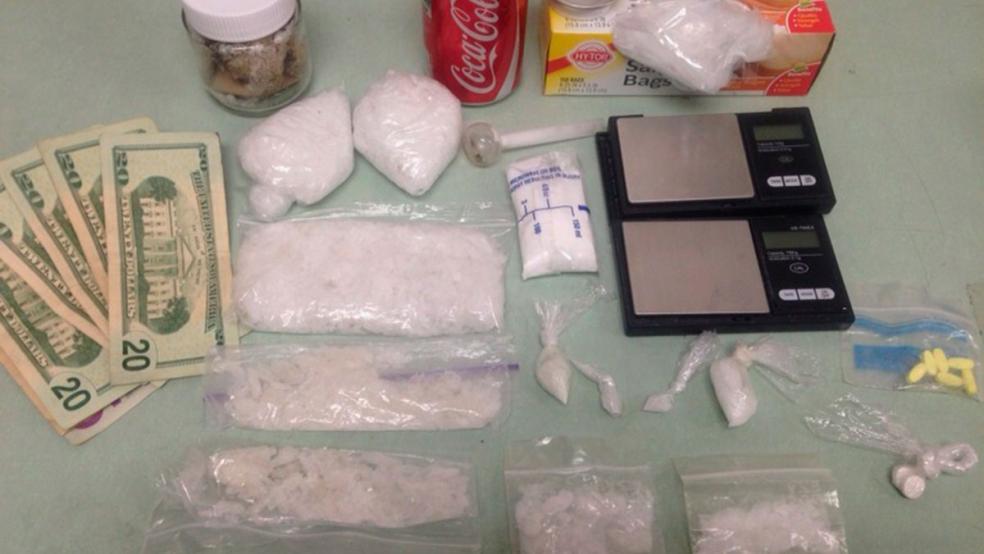It was a relatively small amount in the grand scheme of things, but the Centers for Disease Control and Prevention’s announcement last week of $20 million in grants to combat heroin addiction and prescription drug abuse was emblematic of a growing concern about this mushrooming public health crisis.
The grants will go to 16 states to finance several innovations, such as creating electronic data bases to track the dispensing of drugs and educating drug providers about the risks of pain medication. The CDC says that over the next four years it will provide these states with yearly awards ranging from $750,000 to $1 million.
Related: he Rapidly Rising Death Toll of the Heroin Epidemic
With the need so great, the Obama administration requested an additional $133 million for combating drug abuse nationwide as part of its fiscal 2016 budget request.
“The prescription drug overdose epidemic is tragic and costly, but can be reversed,” CDC Director Tom Frieden said in a statement. “Because we can protect people from becoming addicted to opioids, we must take fast action now, with real-time tracking programs, safer prescribing practices, and rapid response. Reversing this epidemic will require programs in all 50 states.”
Once a problem largely confined to minority populations in urban areas, addiction to heroin and other opiates has evolved into a major public health crisis in suburban and rural areas with large white populations – including the important political battleground states of New Hampshire, Ohio and Iowa.
Democratic presidential frontrunner Hillary Rodham Clinton calls it the “quiet epidemic,” while Senate Majority Leader Mitch McConnell warned that it was “spreading like cancer” across his home state of Kentucky.
New Jersey Gov. Chris Christie (R), a presidential candidate, took part in a discussion of the crisis earlier this year at a drug treatment facility in Manchester, N.H., while Carly Fiorina, another GOP presidential candidate, has spoken emotionally about losing a stepdaughter to addiction, according to The Washington Post.
Related: The U.S. War on Drugs in Afghanistan Is an $8 Billion Failure
Afghanistan produces about 90 percent of the world’s heroin and has been flooding the U.S. market with relatively cheap and easily accessible heroin.
According to the most recent CDC report on the topic, heroin-related deaths more than doubled nationwide between 2008 and 2013 – from 3,041 to 8,260. Overall, overdose deaths from prescription opiates totaled 16,235 people in 2013, compared to 14,800 people in 2008.
From a regional perspective, the Northeast has been hardest hit by the epidemic, followed the South and the Midwest. Ohio recorded an astounding 300 percent increase in overdose deaths between 2007 and 2012, according to the CDC, while Kentucky saw a 279 percent increase during that same period.
McConnell in May told his Senate colleagues that the heroin overdose crisis has hit three Northern Kentucky counties the hardest, and that it is “spreading like cancer” across the Blue Grass State.
Sen. Rand Paul (R-Ky.) has spoken repeatedly on the need to reform drug laws and sentencing policies within the criminal justice system.
Related: You’ll Never Believe Who’s Abusing Heroin Most
Clinton has embraced the drug problem as a major campaign issue since first hearing about it from voters during her “listening tours” in Iowa and New Hampshire earlier this year.
“When I started running, when I started thinking about this campaign, I did not believe I would be standing in your living room talking about the drug abuse problem, the mental health problem, and the suicide problem,” Clinton said during an appearance at an Iowa home in May, according to The Huffington Post. “But I’m now convinced I have to talk about it. I have to do everything I can in this campaign to raise it, to end the stigma against talking about it."
Last week, Clinton proposed a $7.5 billion long-term plan to combat drug abuse by providing training for health care providers, reforming the criminal justice system to emphasize treatment over imprisonment and making sure that first responders carry naloxone, a drug that is used to treat overdoses. She noted that 23 million Americans suffer from drug addiction but only one in ten gets treatment.
“This is not new,” she said in a statement. “We’re not just now ‘discovering’ this problem. But we should be saying enough is enough.”




